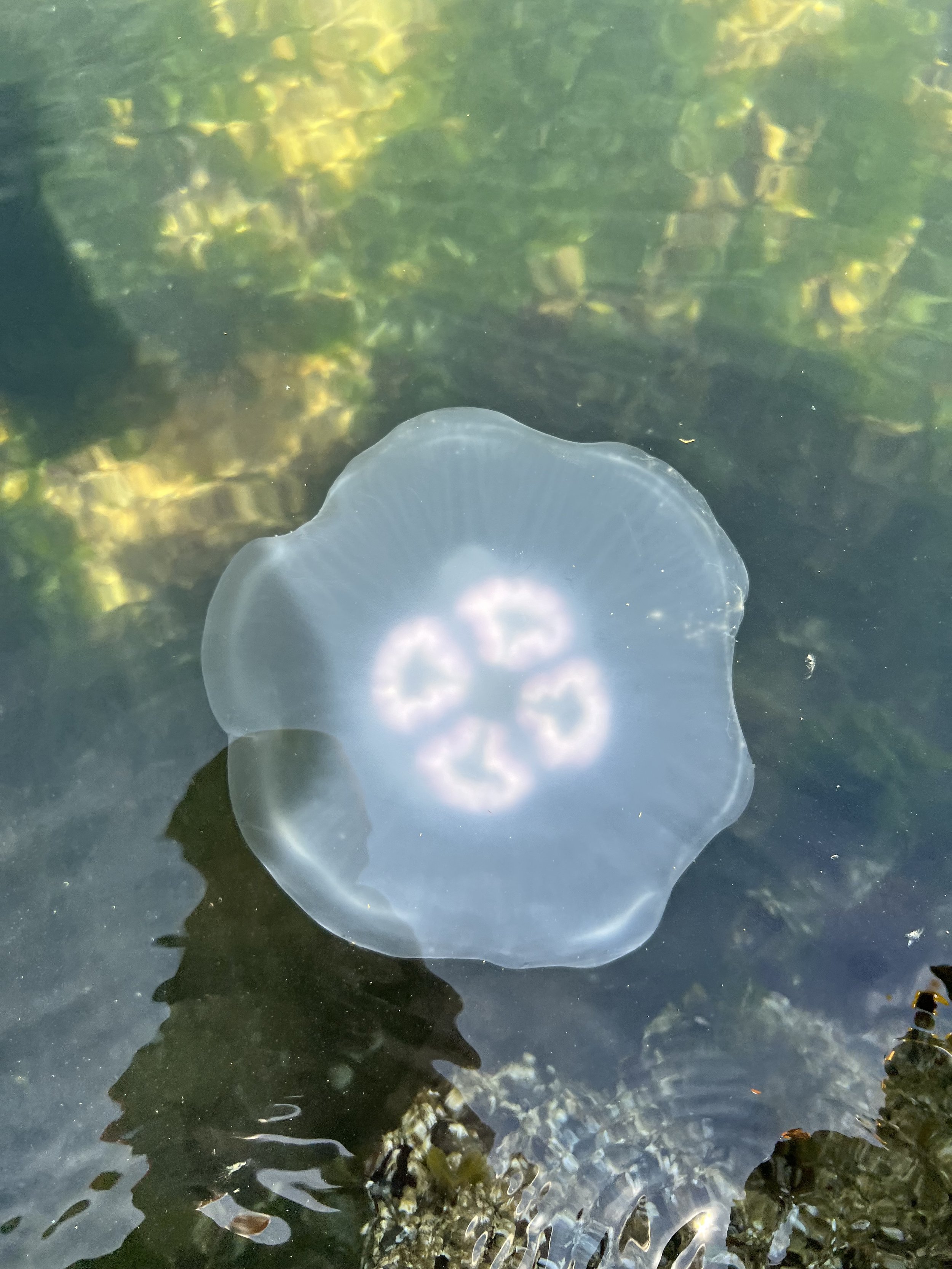Why Can't I See The Jellyfish?
On brain hemispheres, empathy, and the paranormal...
Pursuing a PhD in your forties, particularly in the subject of “noetic sciences,” feels like being in a candy shop. Sure, it’s a pretty nerdy candy shop, but honestly that is how I feel much of the time. I encounter moment after moment in which furtive forces exert their pull on me, and I get to run towards them, open to and engulfed by the possibilities of being fundamentally transformed. Here are a few of these magnetic threads:
Perceptual Refinement: In August, our family and visiting friends took a boat trip through Indian Arm, the traditional lands of the Tsleil-Waututh. At one point, our guide pointed out the jellyfish bloom in the water. At first, I saw nothing, but as I changed my focus, hundreds of white, bobbing shapes emerged. I wondered: how had I missed these over the last hour of our trip? This perceptual refinement – improving one's ability to perceive and distinguish subtle differences in sensory information – made me think about what it might take to expand our metaphorical sight. It reminded me of those childhood optical illusions, where the only way to see both images was to paradoxically relax one’s vision to allow another to appear.
Brain Hemispheres: This connects with Iain McGilchrist’s work on the brain's hemispheres. His insights highlight how our Western, Enlightenment-influenced culture leans heavily on the left hemisphere: detail-oriented, certain, and mechanistic. The right hemisphere, by contrast, embraces context, ambiguity, and holistic experience—qualities found in myth, metaphor, comedy, and poetry. McGilchrist’s framework suggests we’ve overvalued one way of being, losing access to the other. What would it look like to rebalance our engagement of these hemispheres, as Jill Bolte Taylor did in her profoundly moving Ted Talk? I am clearly not pushing for all of us to have strokes, but what might enable such a shift?
Empathy + OBEs: A recent narrative review from the University of Virginia’s Division of Perceptual Studies has uncovered some fascinating insights about out-of-body experiences (OBEs). One of the standout findings is that people who have these experiences often show an increase in empathy and other prosocial behaviors. This suggests there might be a link between the feeling of ego dissolution—when you lose that sense of being separate from others—and a greater sense of connection and compassion. The researchers think that the disembodiment people feel during OBEs could help them experience a profound sense of oneness, leading to more empathetic behaviors. This has so many implications, both for the merits of these paranormal experiences and for broader spiritual questions of consciousness and interconnectivity.
Autism and Telepathy: This podcast is seriously BLOWING ME AWAY. The Telepathy Tapes document non-speakers with autism with extraordinary abilities. Historically marginalized and deemed unintelligent, this work is demonstrating that many of these individuals can read minds, have profound knowledge of subjects they were not taught (e.g., languages), and perhaps even more. It raises questions of what science is trying but cannot prove, why that might be, and what we might do about it. These investigations signal huge potentials, including possibilities of:
Shifting how society conceives of autism – and other forms of neurodiversity.
Expanding domains of communication beyond the verbal and even the traditionally non-verbal.
Reframing how we understand consciousness, non-locality, and the brain.
Pushing the edges of materialist sciences.
Harnessing and tapping into these abilities through AI and other tech innovation.
Exposing us to more evidence of our vast and mystifying interconnections with one other.
How do all of these magnetic threads come together? To be honest, I’m not sure. It’s what I’m trying to figure out at the moment. What I do know is that it is something about the paranormal as bridge. A great revealer of the edges, the brinks at which our left hemispheres can’t go any further. It is these edges, this non-territory of paradox, liminality, and transformation, to which I am drawn - for myself and for the collective.
